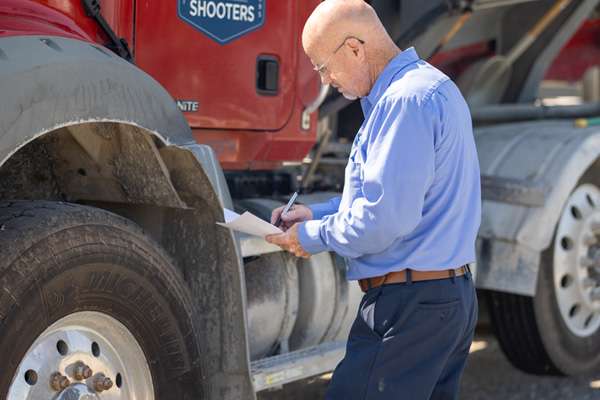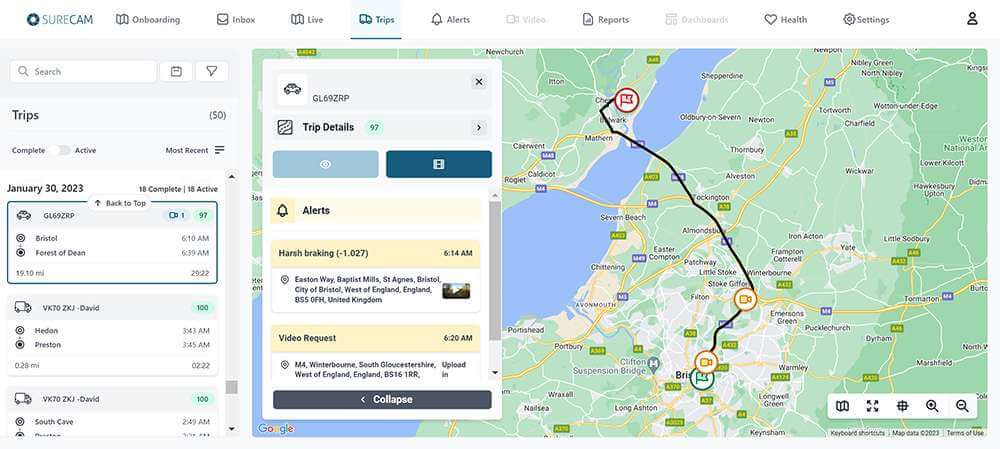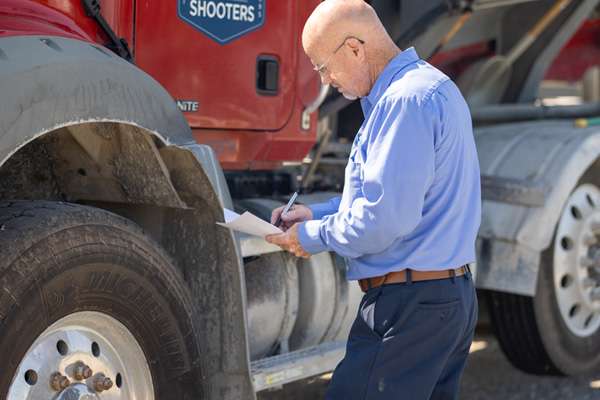Boost Your CSA Score And Ace Your Next Roadside Inspection

Ace Your Next Roadside Inspection
CSA scores can be complicated, especially with the new program changes expected to roll out in September of 2019. To help us better understand CSA scores and how fleets can work to improve them, SureCam reached out to Captain Kevin Kelley of the Missouri Highway Patrol CMV Division to ask his advice. We were lucky enough to sit down with him and ask some questions about his experience, and what fleets can do to improve their score, and prepare for program changes.
Captain Kevin Kelley has worked in law enforcement for the past 27 years, with the last 11 of those years working specifically in CVM enforcement. His agency is responsible for conducting roadside inspections of commercial vehicles, so he has the opportunity to see firsthand the areas fleets struggle with most often.
Improving CSA Scores
CSA VIOLATIONS
First, Captain Kelley pointed out the most common areas for maintenance and driver violations are brakes and tires not up to highway standards, and HOS violations by drivers. He urged drivers and managers to be wary of these areas as these violations, while they may seem small at first, can add up over time to significantly affect your CSA score over time. Captain Kelley advised fleets to keep up vehicle maintenance as, “It can be one of the largest areas of liability.”
NEW CSA CHANGES
When asked about suggestions for fleets looking to prepare for the upcoming changes CSA, Captain Kelley suggested getting involved with your fleet’s safety measures as soon as possible. “Get active with your score. There are some people who don’t pay attention to their scores until they have accumulated a lot of violations. Get into the safety culture, and stay in the safety culture. That way you’re not blindsided by anything.”
This method can help you get ahead on safety quickly, so you are prepared for any additional changes that may arise come September. There are many ways one can achieve this goal:
- Pay close attention to your BASICS’s
- Implement a driver coaching program
- Create a driver incentive program
- Host regular safety meetings with your fleet
Roadside Inspections
Additionally, Captain Kelley suggests that fleets seek out resources such as contacting the CMV Division of the Missouri State Highway Patrol to set up practice inspections so carriers can be prepared for real-life inspections on the road. “The recommendation we make most often is to actually have the carrier give us the vehicle and we will put them through a level 1, level 2, or level 3 inspection. He went on to say, “We don’t want it to be a mystery. We want them to know exactly what we’re looking for, and the types of violations we most often find.”
He strongly encourages fleets to reach out to the MO State Highway Patrol for inspection assistance. This can help you get on top of common inspection violations that can affect your CSA score, and it can help you stay on top of safety now and moving forward.
Getting on top of your CSA score may seem like a daunting task, but it all ties back to one thing: safety. When it comes to best practices, it’s best to get involved sooner rather than later. As our interview concluded, Captain Kelley closed with the statement, “They need to be sure they stay on top of their safety plan. Don’t let it linger. Safety is something that is very important, and it only takes one major incident to cost you everything you might have saved while keeping up on safety.”
By promoting a strong safety culture within your fleet, you can help reduce the risk of accident or injury while on the road and be as prepared as possible for any new emerging regulations.

Book a demo today!
SureCam offers GPS vehicle tracking, live video, and real-time alerts for efficient fleet management. Get a Demo



